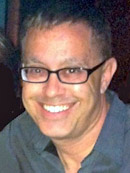
THE BRIDGE TO COLLEGE
Improving Your Medical School Application

A lot of work goes into the preparation for medical school. However, hard work does not always translate into admissions success.
You must be smart about how you present yourself.
In simple terms, medical schools focus upon three things. First, you need great grades in the core courses of medicine (although great grades in every course are always recommended). Second, you need a superior score on the MCAT. Third, you need a strong resume of health-related experience.
All of this needs to be communicated effectively in the application to medical school. Then, if you get past the first stage, you will need to do a great job in your admissions interview.
Too often, great candidates fail to translate their experience into an effective presentation. Remember, they are not evaluating you; they are evaluating your application. If you do not effectively explain what you have done, in the admissions world, it didn’t happen.
This article focuses upon three pieces of the med school application: the resume, the essays, and the recommendation letters.
The most common problem with resumes is a lack of detail. Forget about using a thesaurus to find more compelling verbs to start each bullet point. Do not waste space with adjectives and adverbs that add little or no value.
Instead, embrace this idea: if they can visualize you doing something, then they can understand you better. But to allow them to see, you must give them a thing to see. The only things that are “things” are nouns.
Notice how little you see in your head when you think of the word “passionate.” That’s an adjective. Now notice how quickly you actually see the following words. Elephant. Bridge. School. Researcher. Doctor. Those are all nouns.
Either in real life or in popular culture, you may know someone named Michael. Think about what Michael looks like. Can you see his face?
Michael is my father.
In our heads, we all have our own Michaels (and interns and researchers and doctors). When they read your application, it does not matter what an admissions officer sees, only that they see something. At UCA, we call this “borrowed imagery.”
Medical school applicants have spent hundreds and hundreds of hours in pre-health experience, yet without the right words, nobody can see or comprehend your efforts.
Be specific. Detail wins. Think of the question words from elementary school, especially who, what, where, and when. The answers to those questions are nouns. Use them!
This simple adjustment can improve a resume exponentially. It can also improve your essays.
We often see four “errors” in medical school essays. The first is lack of detail. The second is focusing upon your achievements instead of the way you did what you did. Remember, your achievements are already listed in your resume, so restating them in an essay adds no value to your application (and it usually detracts). The third problem is wasting too much time on your commentary instead of your narrative. If you became more empathetic because of patient encounters, you probably do not need to tell them that you became more empathetic, at least not multiple times. Fourth, remember that learning a lesson should be only part of the story. How you applied your “lesson learned” is critical to their prediction of how you will act as a doctor.
Finally, when asking for recommendation letters, give your mentor some guidance. If you have worked with someone for years, they certainly know you well. However, few mentors understand how their work made a difference to your life. Tell them what part of your experience was most rewarding. Let them know what thing they did made a difference to your growth. Explain why you have chosen them to speak on your behalf.
For a professor who barely knows you, a recommendation letter can be especially challenging. Communicate with them! Provide them information that shows why you requested the honor of their advocacy. What was their influence upon you? What specific part of their class did you enjoy most? Did anything they taught help you find a better life direction?
First, get through the application, being sure to ask someone else to read what you wrote to ensure that you have made the most effective presentation. Then, if you get to the second stage of the admissions process, we can start on interview preparation …
Robert LeVine is the founder and CEO of University Consultants of America, an independent educational consultancy assisting students around the world with applications to colleges, universities and graduate schools. For more information, call University Consultants of America, Inc. at 1-800-465-5890 or visit www.universitycoa.com